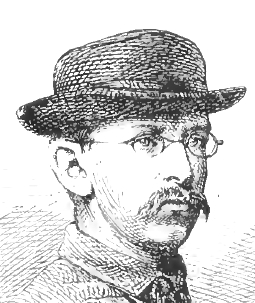Adolf Pansch
Adolf Pansch (1841–1887) was a notable German anatomist and anthropologist, whose work significantly contributed to the fields of anatomy and physical anthropology. Born in the mid-19th century, Pansch's research and findings have been influential in the study of human anatomy and the biological aspects of human beings.
Early Life and Education[edit | edit source]
Adolf Pansch was born in 1841 in Germany. From a young age, he showed a keen interest in the natural sciences, which led him to pursue a career in medicine. Pansch attended a prestigious university in Germany, where he studied medicine and specialized in anatomy. His academic excellence and dedication to his field of study distinguished him early on in his career.
Career and Contributions[edit | edit source]
After completing his education, Pansch embarked on a career as an anatomist and anthropologist. He worked at various universities and research institutions in Germany, where he conducted detailed studies on human anatomy and anthropometry.
One of Pansch's significant contributions to the field of anatomy was his research on the human skull and skeletal system. He conducted extensive studies on the variations in skull shapes and sizes among different human populations, contributing valuable insights to the field of physical anthropology.
Pansch was also known for his work in developing anthropometric techniques and instruments. His methods for measuring various parts of the human body helped standardize the practice of anthropometry, making it more accurate and reliable.
Legacy[edit | edit source]
Adolf Pansch's work left a lasting impact on the fields of anatomy and anthropology. His research contributed to a better understanding of human diversity and the biological aspects of human beings. Pansch's methodologies and findings continue to be referenced by scholars and researchers in the fields of anatomy and physical anthropology.
Though Pansch passed away in 1887, his contributions to science have endured, making him a respected figure in the history of anatomy and anthropology.
See Also[edit | edit source]
Search WikiMD
Ad.Tired of being Overweight? Try W8MD's physician weight loss program.
Semaglutide (Ozempic / Wegovy and Tirzepatide (Mounjaro / Zepbound) available.
Advertise on WikiMD
|
WikiMD's Wellness Encyclopedia |
| Let Food Be Thy Medicine Medicine Thy Food - Hippocrates |
Translate this page: - East Asian
中文,
日本,
한국어,
South Asian
हिन्दी,
தமிழ்,
తెలుగు,
Urdu,
ಕನ್ನಡ,
Southeast Asian
Indonesian,
Vietnamese,
Thai,
မြန်မာဘာသာ,
বাংলা
European
español,
Deutsch,
français,
Greek,
português do Brasil,
polski,
română,
русский,
Nederlands,
norsk,
svenska,
suomi,
Italian
Middle Eastern & African
عربى,
Turkish,
Persian,
Hebrew,
Afrikaans,
isiZulu,
Kiswahili,
Other
Bulgarian,
Hungarian,
Czech,
Swedish,
മലയാളം,
मराठी,
ਪੰਜਾਬੀ,
ગુજરાતી,
Portuguese,
Ukrainian
Medical Disclaimer: WikiMD is not a substitute for professional medical advice. The information on WikiMD is provided as an information resource only, may be incorrect, outdated or misleading, and is not to be used or relied on for any diagnostic or treatment purposes. Please consult your health care provider before making any healthcare decisions or for guidance about a specific medical condition. WikiMD expressly disclaims responsibility, and shall have no liability, for any damages, loss, injury, or liability whatsoever suffered as a result of your reliance on the information contained in this site. By visiting this site you agree to the foregoing terms and conditions, which may from time to time be changed or supplemented by WikiMD. If you do not agree to the foregoing terms and conditions, you should not enter or use this site. See full disclaimer.
Credits:Most images are courtesy of Wikimedia commons, and templates Wikipedia, licensed under CC BY SA or similar.
Contributors: Prab R. Tumpati, MD

